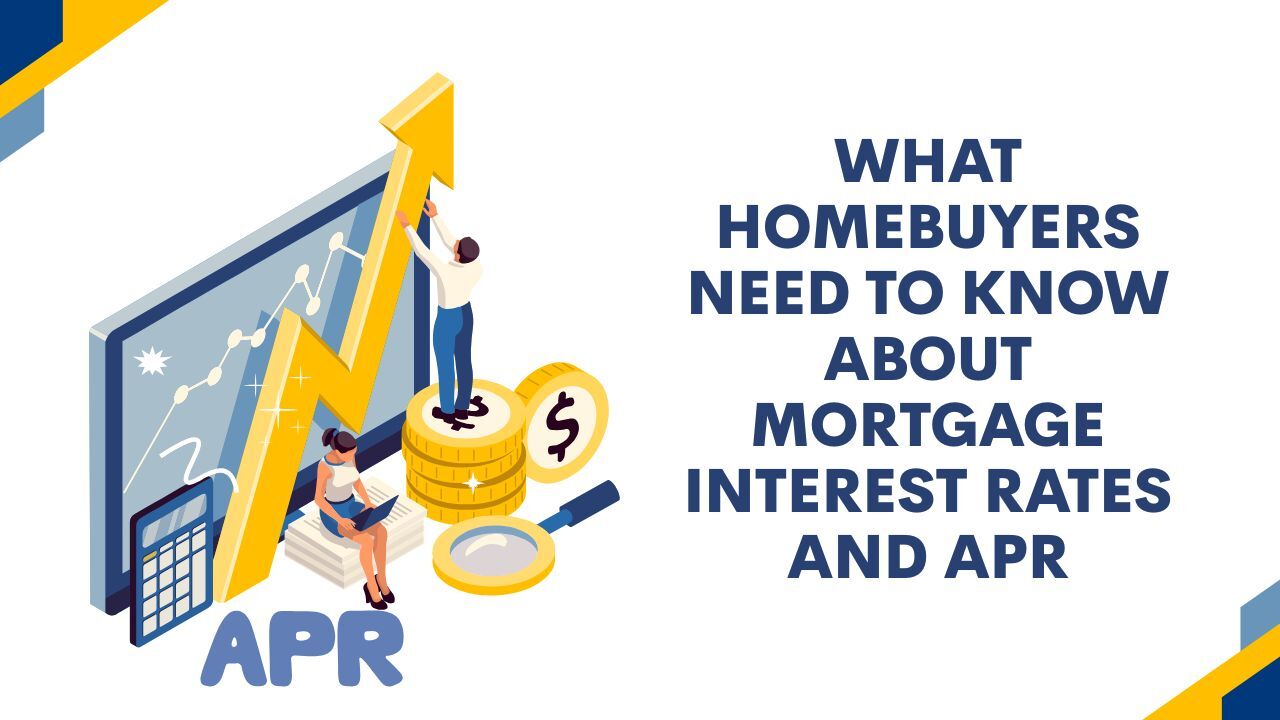What Homebuyers Need to Know About Mortgage Interest Rates and APR
 When applying for a mortgage, borrowers are often presented with several important numbers that determine the true cost of the loan. Two of the most discussed figures are the mortgage interest rate and the annual percentage rate, also known as APR. While these terms are closely related, they are not the same. Understanding the distinction between interest rate and APR is essential for comparing loan offers accurately and making informed financial decisions.
When applying for a mortgage, borrowers are often presented with several important numbers that determine the true cost of the loan. Two of the most discussed figures are the mortgage interest rate and the annual percentage rate, also known as APR. While these terms are closely related, they are not the same. Understanding the distinction between interest rate and APR is essential for comparing loan offers accurately and making informed financial decisions.
What a Mortgage Interest Rate Represents
The mortgage interest rate is the percentage a lender charges for borrowing money. This rate is applied directly to the loan principal and determines how much interest you will pay over the life of the mortgage. For example, a $300,000 loan with a 5% interest rate means the borrower will pay interest based on that percentage each year. The interest rate is the foundation of your monthly mortgage payment, but it does not include other loan related costs.
What APR Tells You About the Total Loan Cost
APR provides a broader view of what a mortgage truly costs. It includes not only the interest rate, but also many of the additional fees that may be required to obtain the loan. These costs can include loan origination fees, discount points, private mortgage insurance when applicable, and certain closing costs such as appraisal or title services. Because APR reflects both interest and fees, it is typically higher than the advertised interest rate.
Why Understanding Both Numbers Matters
Interest rate and APR serve different purposes. The interest rate tells you the direct cost of borrowing the loan amount, while APR helps you understand the full cost of the mortgage when fees are included. Two lenders may offer the same interest rate, but one loan could be significantly more expensive because of higher upfront charges. Comparing APR can help buyers identify which loan offer is truly more cost effective over time.
Borrowers should review both the interest rate and APR when evaluating mortgage options. Taking the time to compare multiple offers, ask questions, and understand the full cost structure of a loan can lead to stronger financial outcomes and more confident homeownership decisions.

 Purchasing a home is one of life’s biggest milestones, but before you start touring properties, it is important to know whether you are financially prepared to qualify for a mortgage. Many buyers wonder if they are truly ready from a lender’s perspective or if they should spend more time strengthening their finances. Mortgage readiness is not about being perfect, it is about having the right financial foundation in place. When several key indicators align, you can move forward with greater confidence and clarity.
Purchasing a home is one of life’s biggest milestones, but before you start touring properties, it is important to know whether you are financially prepared to qualify for a mortgage. Many buyers wonder if they are truly ready from a lender’s perspective or if they should spend more time strengthening their finances. Mortgage readiness is not about being perfect, it is about having the right financial foundation in place. When several key indicators align, you can move forward with greater confidence and clarity. No deposit mortgage loans can sound appealing to buyers who want to purchase a home without spending years saving for a down payment. While these loans offer clear advantages, they also come with risks and responsibilities that every buyer should consider before moving forward.
No deposit mortgage loans can sound appealing to buyers who want to purchase a home without spending years saving for a down payment. While these loans offer clear advantages, they also come with risks and responsibilities that every buyer should consider before moving forward.